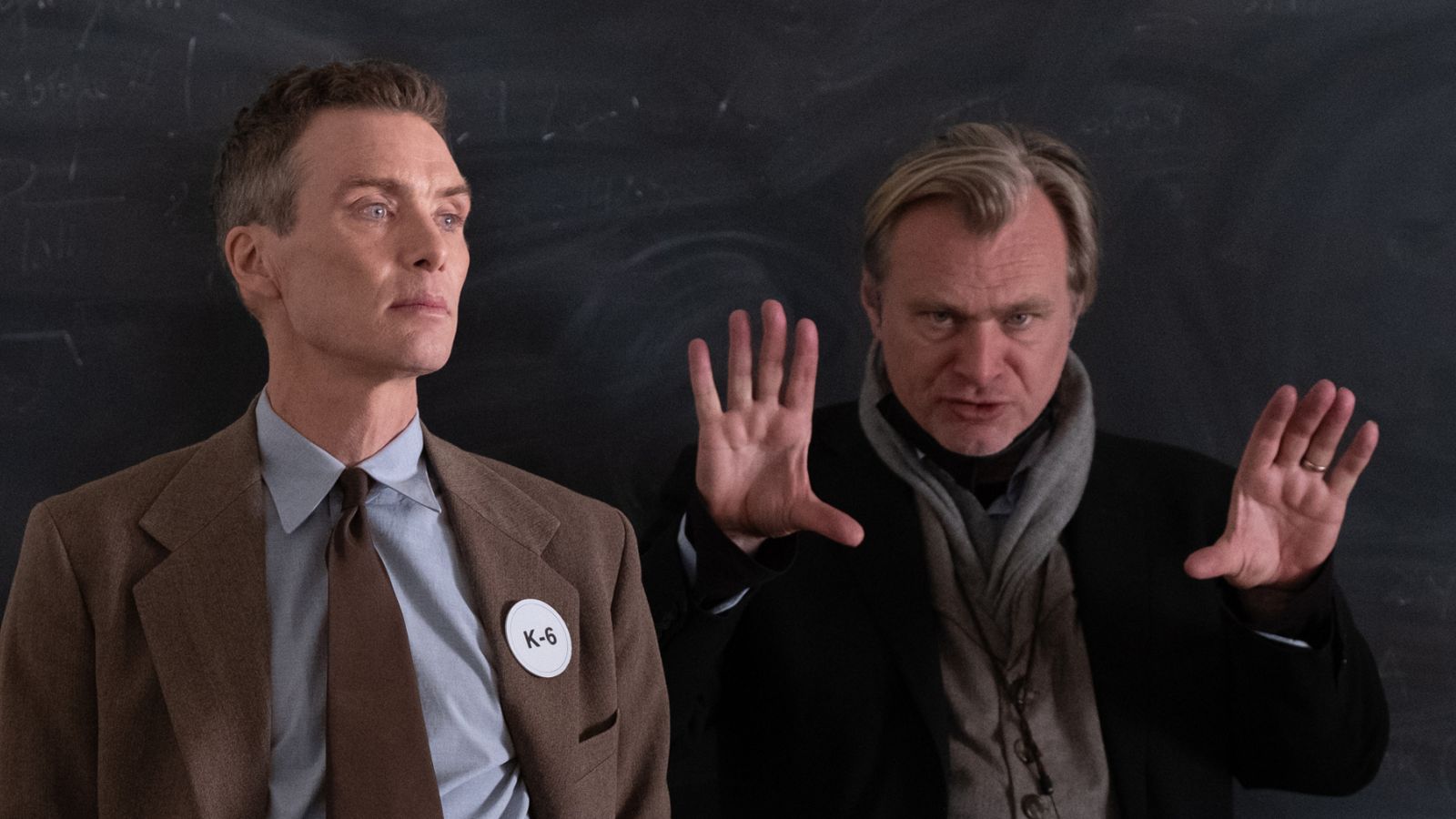'The danger never goes away': Christopher Nolan didn't intend for Oppenheimer movie to be so timely
Known as the father of the atomic bomb, J. Robert Oppenheimer changed the course of history. Now, director Christopher Nolan takes his story to the screen - but does the three-hour epic pull it off? Critics think so.

The world's first nuclear explosion happened on 16 July 1945, when a plutonium implosion device was tested in New Mexico.
Now a new film about the so-called father of the atomic bomb, J Robert Oppenheimer, looks at how he came to create a weapon that would change the world and how it changed him.
On the test ground for the atomic bomb near Almagordo, N.M., Dr. J. Robert Oppenheimer, University of California physicist, smokes his pipe as he contemplates the site on Sept. 9, 1945. (AP Photo)
Decades since its invention, as Russia's war rages in Ukraine, the weapon's threat to the world is back in people's minds.
Director Christopher Nolan, who also wrote the movie, basing it on the Pulitzer Prize winning book American Prometheus by Kai Bird and Martin J Sherwin, told Sky News he never meant for his film to be so timely.
"I had a conversation with one of my teenage sons about what I was working on and he literally said to me - 'Does anybody really worry about nuclear weapons anymore? Is that really a thing in the world?'
"To which I said, 'Well, maybe that's a reason for making the film but beyond that, it's just a very, very dramatic story about how our world changed forever'.
"Two years later, he's not asking that question anymore and neither is anybody else for all the worst possible reasons, and that's symptomatic of our relationship with the threat of nuclear weapons and nuclear holocaust - it ebbs and flows with geopolitical shifts in a way that it shouldn't - I mean, the danger never goes away."
To inhabit the role of Oppenheimer, Peaky Blinders star Cillian Murphy lost weight and perfected a new accent and also had to learn about quantum physics and grapple with Oppenheimer's morality.
"Actors love getting jobs and then they're dying to finish them, that seems to be the way," Murphy told Sky News.
"So, yeah, it was time for a holiday after that for sure, if you do anything for like 17, 18 hours a day and you're in that and you're on set all the time, naturally there will be a cost and then you feel at the end there's all this displaced energy and you're not quite sure what to do with it, and you start moving furniture around."
Nolan interjects: "And have a sandwich".
For the director, known for movies including Intersteller, Inception and Dunkirk - and who has a reputation for shunning digital effects and greenscreen - it wasn't recreating a nuclear explosion that posed a challenge.
Instead, he says he found the casting process daunting.
"The ensemble - with Cillian at the heart of it as Oppenheimer - but then his interactions with this entire team of people coming together to pull off this, you know, impossible feat, that was a challenge for me.
"Doing these group discussions, these arguments, these interpersonal relationships and all of that, all of which came into such a kind of hothouse atmosphere with the Manhattan Project and everything they had to do in the years that they were there.
"That was something I'd never really taken on before."
The extremely positive early reviews for Oppenheimer suggest Nolan rose to that challenge.
But now, with promotion for the film interrupted by the US actor's strike, it remains to be seen whether audiences will have the appetite for a three-hour epic about the creation of the atomic bomb - the end of the world perhaps too close for comfort to be considered entertainment.
Oppenheimer, which also stars Emily Blunt, Matt Damon, Florence Pugh and Robert Downey Jr, is released worldwide on Friday 21 July.
-sky news







